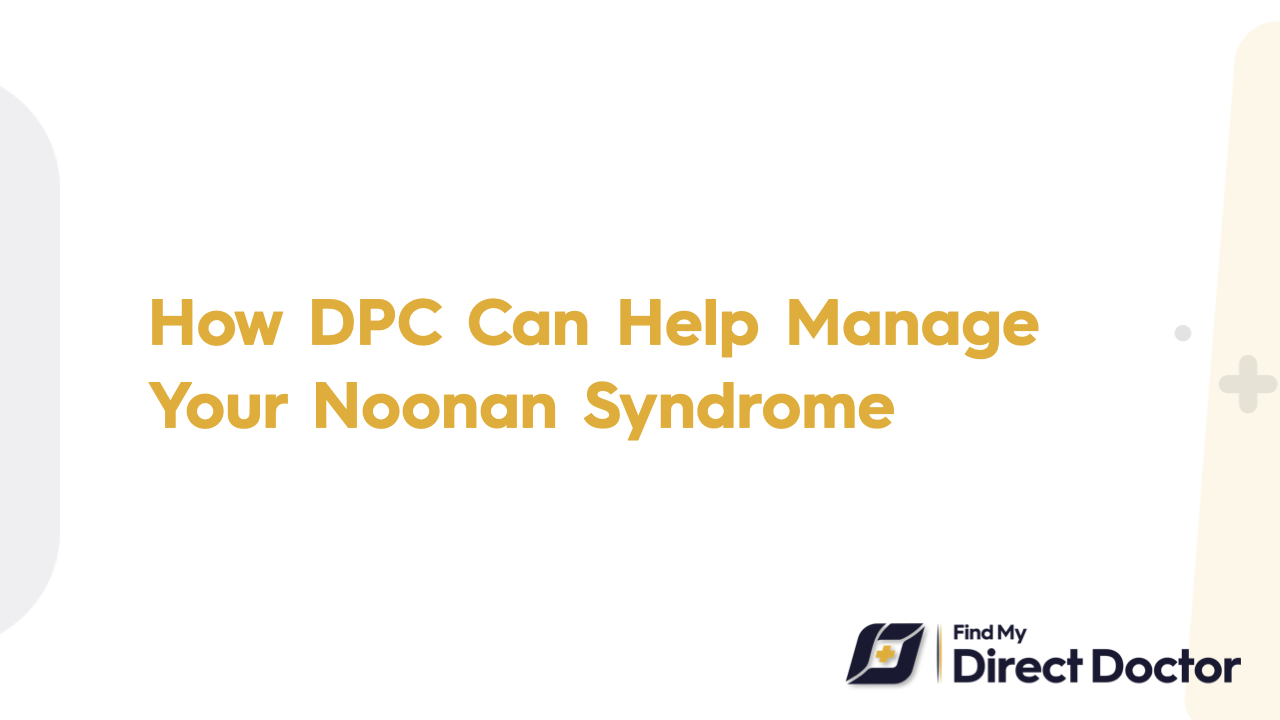



A genetic condition that affects different sections of the body, Noonan syndrome is characterized by a variety of medical, developmental, and physical problems. Developmental delays, unique facial traits, heart problems, and low height are typical signs. People who have Noonan syndrome may also have hearing loss, visual problems, and blood clotting disorders. Early diagnosis and therapy can help manage many of the challenges associated with this condition and improve quality of life, even though the intensity of symptoms can vary widely from person to person.

By providing individualized, continuous care that takes into account the complex nature of Noonan syndrome, Direct Primary Care (DPC) can be a vital source of support for those who have it. DPC guarantees prompt referral to specialists for more complicated issues and permits routine monitoring of symptoms like growth trends, heart health, and hearing. DPC providers can assist in managing the condition's multiple facets through ongoing care and communication, guaranteeing that therapies are coordinated and customized to meet the patient's specific requirements.
For people with Noonan syndrome, DPC provides a number of advantages, especially by fostering a trustworthy, long-term relationship with medical professionals. Better results are achieved through more proactive symptom management made possible by DPC's emphasis on prevention and early detection. Direct communication between patients and their medical team enables prompt modifications to treatment regimens when necessary. Furthermore, DPC provides the ease of having fewer patients, which means more time and focus on each person. This is especially helpful when managing a complicated condition like Noonan syndrome.
Noonan syndrome is managed in a highly individualized manner in a Direct Primary Care paradigm. In order to create customized care plans that take into account the range of symptoms and possible problems connected to the syndrome, DPC providers take the time to learn about each patient's unique needs and difficulties. From cardiovascular problems to developmental challenges, this method guarantees that every facet of the patient's health is properly tracked and handled. Consistent follow-up is made possible by DPC's continuity of care, guaranteeing that patients receive the finest care possible, customized to meet their changing medical needs.